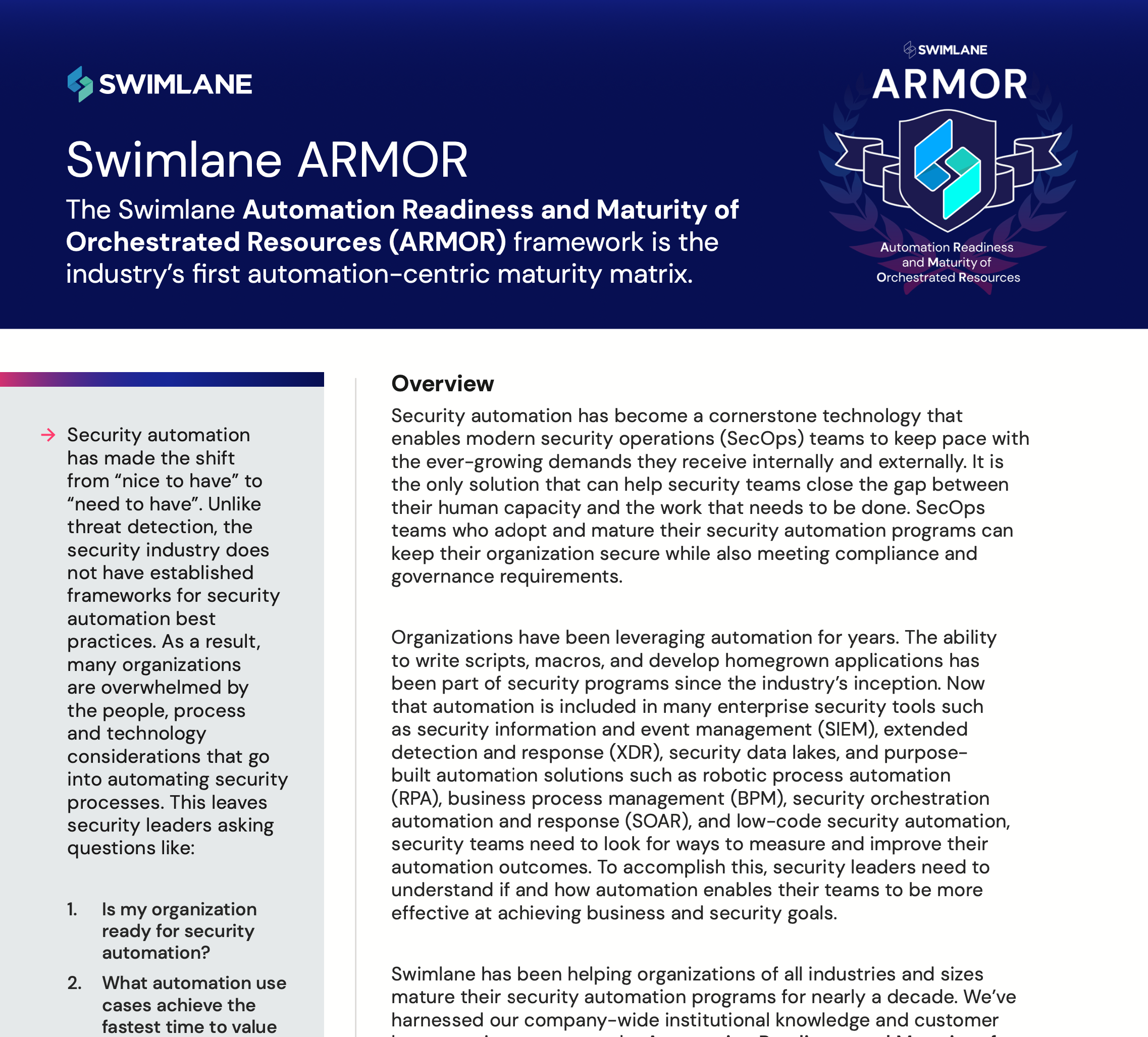Today’s digital landscape is thriving and evolving. With no traces of slowing down, organizations are expected to optimize processes further while simultaneously securing their overall infrastructure. And DevSecOps is one of the crucial components helping organizations keep up with the changes and challenges in the industry.
But what is DevSecOps? What is the main goal of DevSecOps? And what do DevSecOps engineers do? In this guide, we will highlight the impact of DevSecOps and the people behind this cutting-edge IT technique.
What is DevSecOps?
DevSecOps is a rather complex practice that integrates three distinct areas of information technology: Development, security and operations.
- Development covers the creation and entire lifecycle of new technologies.
- Security focuses on ensuring the infrastructure is protected from threats and attacks.
- Operations encompass the core processes and tools of the network and system.
DevSecOps is a collaborative framework where security is placed at the forefront in developing applications and handling entire network operations. At its core, it underlines the importance of automation in improving and securing the software development cycle.
As a tactical methodology for a seamless, secured, and optimized IT infrastructure, companies need experts to keep up with the competition and stay ahead of threats. This is where DevSecOps engineers bring their expertise to the table.
What is a DevSecOps Engineer?
A DevSecOps engineer is a skilled security professional who ensures that security is seamlessly and effectively integrated with the software development life cycle (SDLC).
With a modern approach to software development and security, organizations bank on DevSecOps engineers to develop applications and secure codes from risks and data breaches. The ability to fuse coding and cybersecurity is crucial, especially with the rapid development cycles and the surge of different types of cybersecurity attacks.
Say goodbye to the days when teams had to wait until the last stretch of software development to integrate security features. The spiraling trend of cyber threats makes it difficult to use the same old security practices. Now, enhanced security measures, and security automation, in particular, need to be incorporated from the very beginning of the process. And that’s where DevSecOps engineers come in.
DevSecOps Engineer Roles and Responsibilities
The roles and responsibilities of a DevSecOps engineer are extensive. From optimizing software processes to ensuring a network free from security vulnerabilities, let’s underline the core tasks of DevSecOps engineers through each distinct discipline.
Development:
- Implement tools and technologies
- Test new systems and applications
- Automate key security processes
- Create solutions for an efficient and secure organization
Security:
- Identify security holes and potential breaches
- Develop security strategies and controls
- Mitigate risks and vulnerabilities
- Promote cybersecurity awareness
Operations
- Work with various teams for seamless operations
- Comply with relevant standards and regulations
- Monitor the overall network and security infrastructure
DevSecOps Engineer Skills
To succeed in this field, DevSecOps engineers need refined skills and extensive technical knowledge. But what specific skills do you need for a DevSecOps engineer role?
- Solid grasp of security concepts: Security takes up a significant part in the role of DevSecOps engineers. To excel in this career, stand by the basic security concepts of integrity, confidentiality, and availability.
- Strong understanding of the entire Software Development Lifecycle: The SDLC refers to the structured process of creating software technologies that are cost-effective, high-quality, and time-efficient.
- Knowledge of the best security practices and principles: DevSecOps engineers are expected to abide by the company’s security standards and policies.
- Adeptness in the architecture of applications: It’s essential to be proficient in the key patterns and techniques when designing and developing apps. Understanding orchestration tools is a plus.
- Expertise in programming: Creating solutions through coding is another primary responsibility of these professionals. Knowledge in languages like Python, Java, JavaScript, Bash, PowerShell, and Perl makes these engineers a formidable component of the company.
- Familiarity with automation: In today’s fast-paced industry, automation is pivotal. It optimizes the operational and security processes, including incident response and mitigation.
- Communication and collaboration skills: The day-to-day work of DevSecOps engineers includes working with others in the SOC, other departments, and relevant professionals to integrate security throughout the SDLC efficiently.
- Willingness to acquire new knowledge: New technologies emerge every day. The same applies to cyber threats. For this reason, flexibility and threat readiness go hand in hand among these tech professionals.
- Technical skillset: The complexity and the extensiveness of the responsibilities lead to the importance of strong problem-solving skills. DevSecOps engineers need to work through multifaceted security issues and create effective solutions.
Challenges Faced by DevSecOps Engineers
DevSecOps engineers contribute to the success of operational and security efficiency. But just like any other area of IT, there are challenges around the workplace. Here are some of the typical obstacles in the practice of DevSecOps and how each impacts the professional and the company in general.
- Lack of support from higher management: Support and assurance are vital in DevSecOps, especially with the weight of responsibility. If there’s no solid guidance at both business and project levels, there’s a big possibility for the team to fail.
- Cultural adjustments: DevSecOps requires a modern technique for enhancing security measures that may not be easily adopted by people. The cultural shift lies in the incorporation of security into the initial stages of the software development process. Accordingly, this may be difficult for some considering that the SecOps team and the development squad have unique goals.
- Inadequate knowledge and skills: From programming solutions to developing security controls, DevSecOps engineers handle some of the most complex tasks in an IT organization. To work on their tasks efficiently and effectively, they are expected to be adept in programming and cybersecurity.
- Insufficient resources: The industry is getting more complex day by day. To stay abreast with the digital shift, the DevSecOps team needs to be equipped with the right set of tools and data.
The Solution to DevSecOps Engineers Challenges:
Automation. Yes, it’s just that simple. The process of automating the integration of security into DevOps, allowing to drastically reduce the number of errors that occur in pipelines.
Weedmaps, a leading cannabis technology platform, found itself facing some DevSecOps challenges. Weedmaps chose Swimlane for its flexibility and automation capabilities. Swimlane’s sandbox-like nature now allows Weedmaps to customize automation, fostering innovation and creativity. The platform significantly improved compliance, business intelligence, and incident response metrics and surpassed traditional tools like Jira. Weedmaps credits Swimlane’s dynamic professional service team for solving complex challenges and enabling a streamlined and secure development pipeline, ultimately transforming their security processes.
Common DevSecOps Engineer Questions
What is the Difference Between a DevOps Engineer and a DevSecOps Engineer?
DevOps and DevSecOps often intertwine in terms of functionalities. Yet even with the similarities, each have different objectives. DevOps engineers are more inclined to application development and operations: cover coding, system administration, and infrastructure management.
While, DevSecOps engineers work on the development and operational process while taking into account relevant security practices and protocols, like integrating security automation. So, apart from the basic DevOps framework, DevSecOps tackles cybersecurity risks as they occur.
How Does a Cybersecurity Engineer Differ from a DevSecOps Engineer?
As security takes up a substantial part in DevSecOps, engineers’ and cybersecurity engineers’ responsibilities are overlapping now more than ever. Still, there are major differences, especially in the scope of functions.
As opposed to cybersecurity engineers who focus on the ins and outs of security measures, DevSecOps engineers prioritize developing and securing applications. The two positions meet at the intersection of security, where it’s crucial to respond to security threats immediately to ensure all networks and systems are free from cyber breaches.
Does DevSecOps require coding?
Most DevSecOps engineer jobs give priority to both security and coding. Since these two are the main areas of responsibility, anyone pursuing a career in the DevSecOps should be knowledgeable of programming frameworks and languages. It’s important to build your proficiency in coding to be able to work within the DevSecOps teams effectively.
However, DevSecOps automation allows for a reduced reliance on these advanced skill requirements, empowering people with the tools needed to ensure code and configurations are secure without any need to become security specialists.
Is DevSecOps a good career?
DevSecOps is a trifecta of thriving IT methodologies and focus areas. It’s a combination of DevOps and security, which means the range of skills and opportunities for growth are comprehensive. Aside from that, cybersecurity and software development continue to be on the rise.
The demand for DevSecOps talent is growing. More and more companies latch onto the importance of security in the entire software development process. So, pursuing a career in software engineering and DevSecOps might just be the right call in an era of digital transformations.
Empower the DevSecOps Team with Swimlane
Year by year, advancements swamp the IT landscape, adding to the competition in the market. At the same time, security vulnerabilities and breaches multiply in frequency and complexity.
To combat the surge of developments and challenges, organizations are projected to optimize their processes to remain on top of things. By integrating security automation into DevSecOps, organizations can stay in control. The capabilities of the DevOps engineering team combined with cutting-edge innovations, like security automation, are more than enough to shape organizational processes and take the IT industry to newer heights.
And when it comes to automating security, a platform like Swimlane Turbine will play a crucial role in an organization’s overall security framework. Leveraging low-code automation can boost operational flexibility and proactively pinpoint vulnerabilities in your systems, preempting potential exploitation by hackers.

The Swimlane ARMOR Framework
SecOps teams who want to map their goals, tactics, and security automation use cases to industry standard frameworks like NIST, CMMC, CMMI or C2M2

